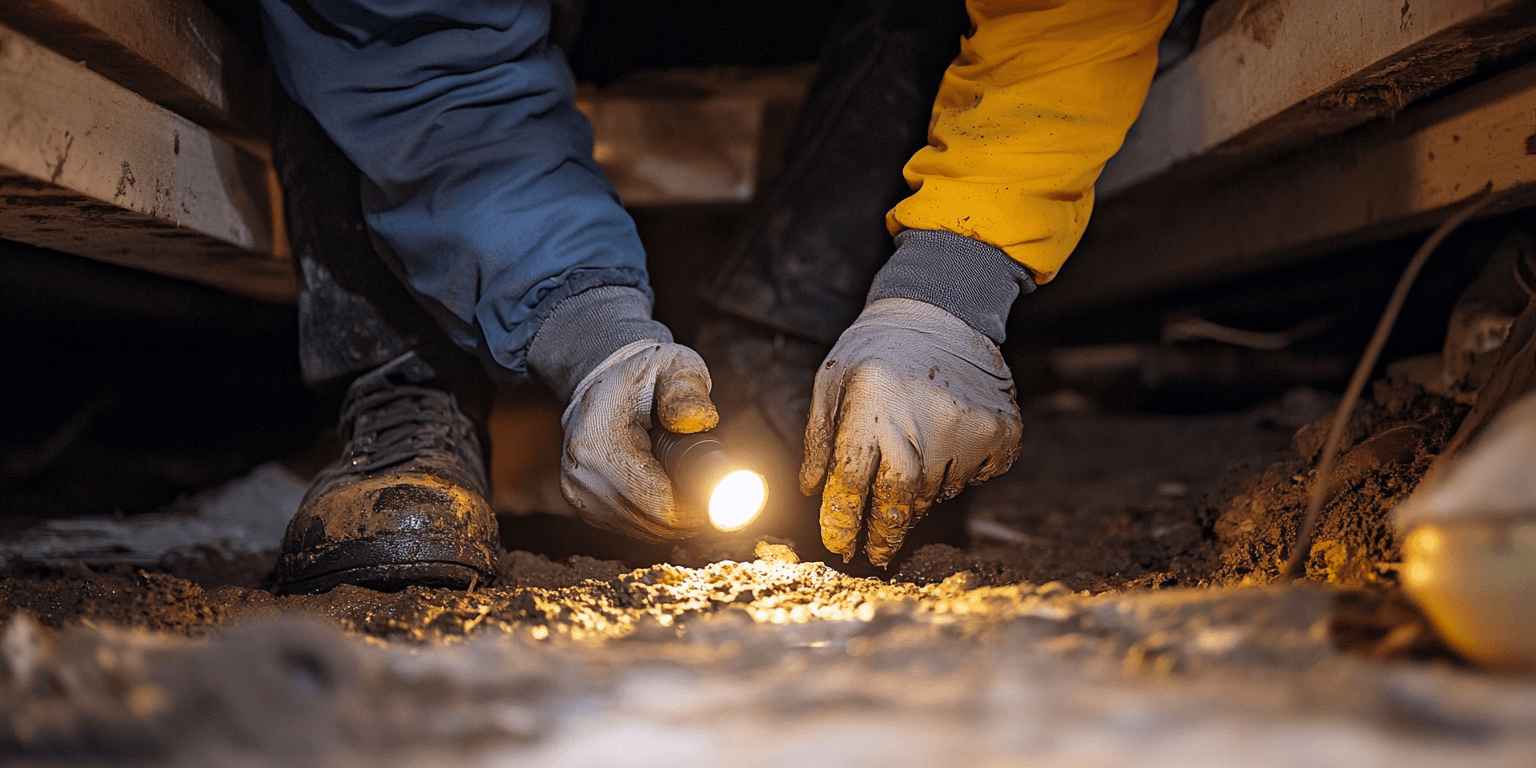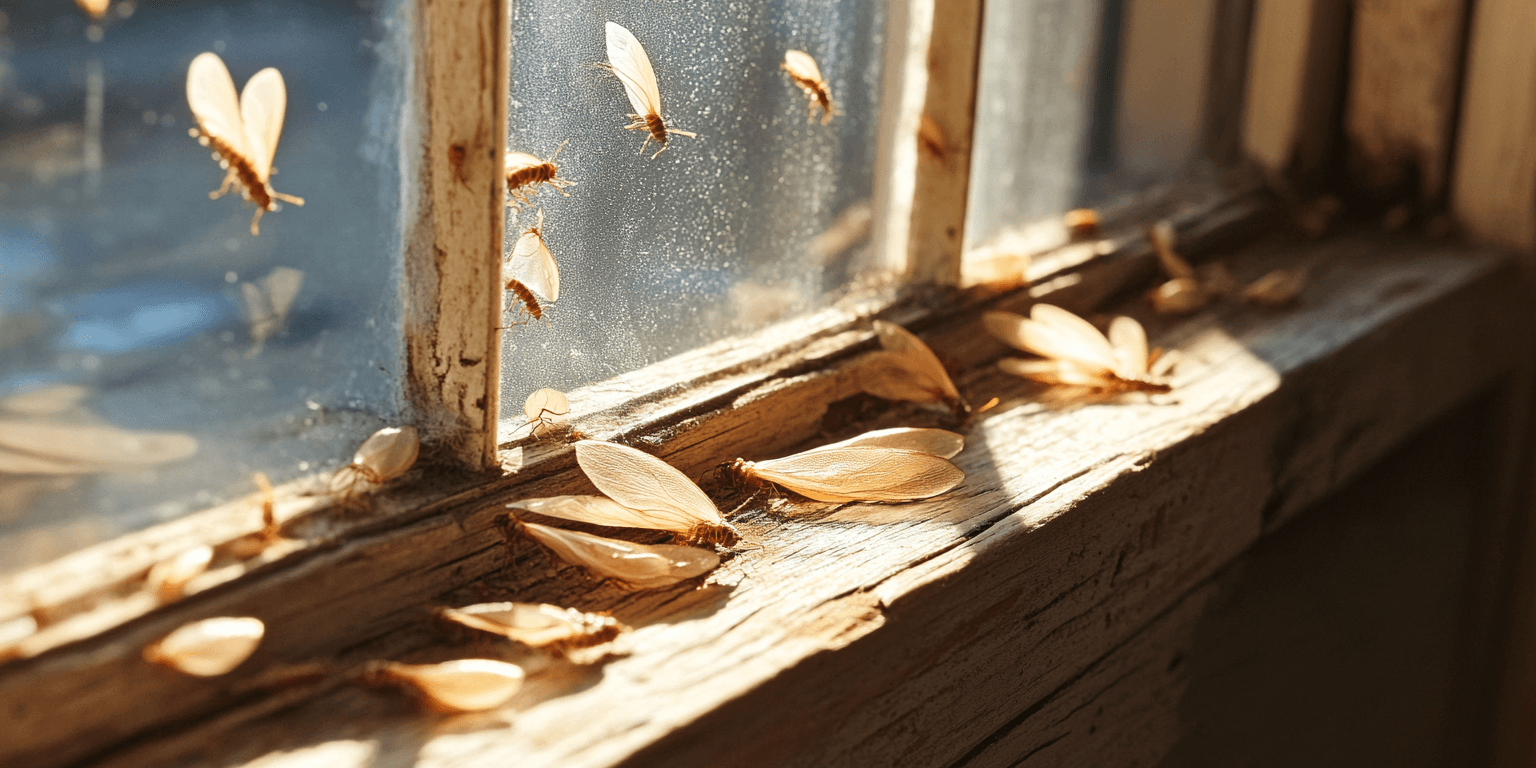
Termite inspections should always be part of the home-buying process. Termites silently destroy wood and other building materials, often going unnoticed until the damage is significant. Without a proper termite inspection, you could end up with costly repairs down the road, far beyond what’s expected.
A professional inspection will help you determine if termites have already caused damage, whether a current infestation exists, and the potential future risk for termite problems. By catching termite issues early, you can either avoid an unwise purchase or use the inspection findings to negotiate necessary repairs or price adjustments.
While most termite damage isn't visible during a typical home tour, there are clear indicators that termites may be present. At 1st Choice Inspection Services, we know exactly what to look for when inspecting a property.
5. Frass (Termite Droppings)
Frass, or termite droppings, is often left behind as termites tunnel through wood. These tiny pellets, usually found near the baseboards or foundation, are a sign that termites have been actively feeding in the area.

A termite inspection is more than just looking for signs of visible damage. It involves a detailed, thorough check of the entire property, including areas that may not be accessible during a standard walk-through. 1st Choice Inspection Services provides comprehensive termite inspections to ensure that any infestation is caught early, and existing damage is properly evaluated.
3. Using the Inspection to Negotiate
If termite damage is detected, it can give you an advantage when negotiating with the seller. Whether you request that the damage be repaired before closing or use it to lower the purchase price, having a clear understanding of the condition of the home will give you more control during negotiations.
Finding termite damage doesn’t always mean you need to walk away from a home. However, there are certain steps you should take to protect yourself if an inspection uncovers damage.

Even after repairs, keeping termites at bay is crucial. Here are a few tips to help you prevent future infestations:
At 1st Choice Inspection Services, we know how important it is to ensure your home is free of termites before you buy. A professional termite inspection gives you peace of mind, whether it uncovers hidden damage, helps you negotiate with the seller, or simply confirms that the property is in good condition. By catching termite damage early, you can avoid unexpected costs and protect your investment.
For expert termite inspections and complete home inspection services, trust 1st Choice Inspection Services TREC#9175. We’ve got the experience and knowledge to ensure your home is structurally sound and free from pests.
Common signs include mud tubes, hollow-sounding wood, discarded wings, frass (termite droppings), and tight doors or windows.
A termite inspection helps uncover hidden damage, assess the extent of an infestation, and gives you leverage to negotiate repairs or a price reduction with the seller.
Get a professional estimate for repairs, assess the level of the infestation, and use the findings to negotiate with the seller for repairs or a reduction in price.
Yes, termite damage can be repaired, but the cost will depend on the extent of the damage. It’s important to have an inspector assess how severe the infestation is.
It’s recommended to have a termite inspection every 2-3 years, especially in areas where termites are common. Regular inspections can catch problems early before they become serious.